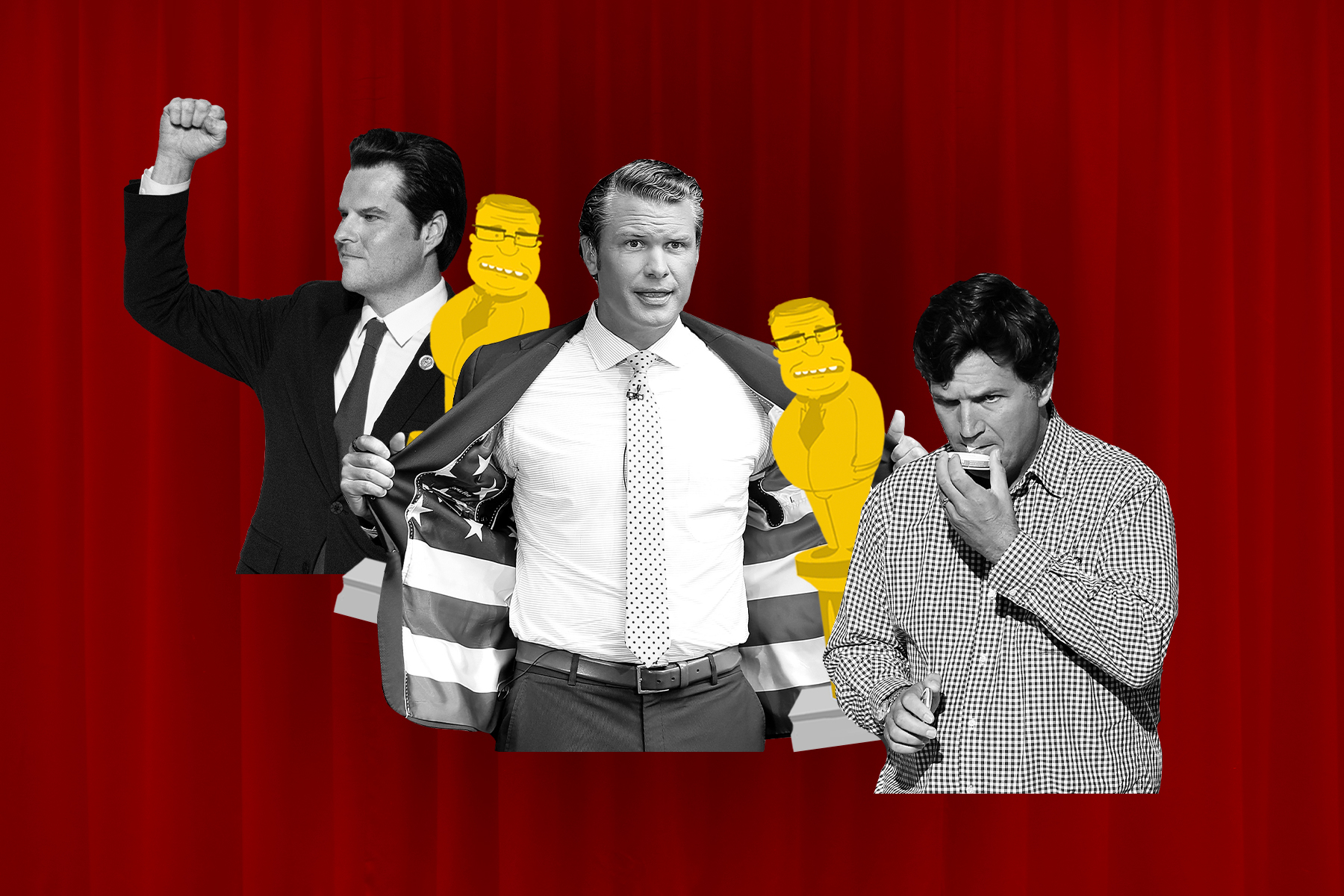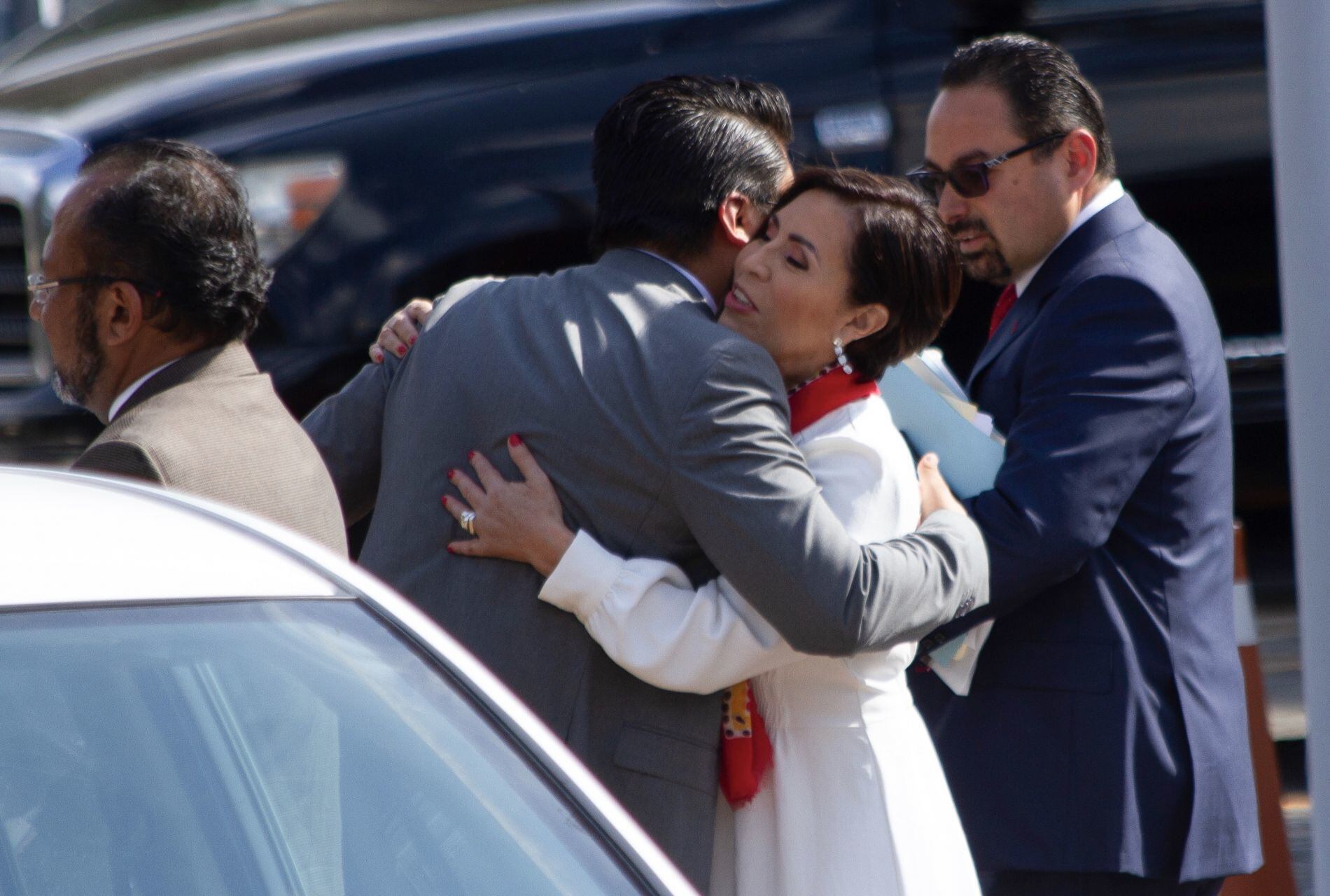By BAGEHOT
A PATTERN is emerging in political journalism. Whenever something can be construed as a rejection of the establishment, or a win for authoritarianism, or a triumph for swaggering, braces-twanging bombast—or some other shift the writer does not like—the subject is ascribed to a global Trump-ite revolution. Often this comes without nuance.
Take this week. On Monday responses to the election of a statist, pro-death-penalty MEP as UKIP leader obeyed the trend. “Paul Nuttall: Poundshop Trump” ran one much-shared tweet; “Trump minus the wig” was another. Today Tim Farron, the leader of the Liberal Democrats, called his centrist party’s victory in the Richmond Park by-election a “repudiation” of Mr Trump. On Sunday Italians may reject their government’s proposed constitutional reforms: “Italy has a Trump of its own” claimed a Haaretz headline of the leader of the “No” campaign. Also on Sunday a presidential election in Austria could produce Europe’s first far-right head of state since 1945. “Austrian nationalists hope for a ‘Trump bump’” fretted today’s Washington Post. Barely a day goes by without politics somewhere being related to the president elect’s shock victory.
Enough. It’s not that the comparisons are fundamentally wrong. A populist, nationalist wave is sweeping the West. It has to do with the economic crisis, globalisation, automation, immigration, stagnant wages, social media and a less deferential culture; albeit in drastically varying proportions in different countries. Each instance of this shift spurs on the next. So to draw comparisons is fair. Important ideological and demographic traits unite Mr Trump’s election, Britain’s vote for Brexit, Mr Nuttall’s prospects in northern England, Norbert Hofer’s in Austria and those of the “No” campaign in Italy. There is also the Dutch vote in April against the EU-Ukraine association agreement, the rise of hard-right parties like the Sweden Democrats and Alternative for Germany, authoritarian leaders like those of Hungary and Poland, movements like Pegida and the Tea Party.
The problem is that talking about the similarities between these forces is all the rage, but talking about their differences is not. And that matters. For the similarities tell a flattering story: one of ordinary folk everywhere losing patience with their self-serving rulers; the private-jet-bound Davos crowd, the Clintons and Blairs, the Goldman Sachs bosses and their silky lobbyists. The similarities narrate a 1989 for the 21st century. The overlooked differences, however, are just as striking, and all-together less flattering.
They tell local tales that give the populists less credit. Tales of Hillary Clinton’s failings and those of her campaign, of David Cameron’s endless use of Brussels as a punch bag, of the organisational weaknesses of Britain’s anti-Brexit campaign, of the liberal arguments against Mr Renzi’s constitutional reforms, of UKIP’s dysfunction and Nigel Farage’s inability to win even a favourable parliamentary seat last year. Each of these sagas is specific and rooted. Each, too, suggests that the populists in question are not quite the dynamic heralds of an unstoppable change that the similarities between them might imply.
The differences complicate the story of a sudden wave of change. They reveal that while Ms Le Pen may make the second round in the French election next year, her more overtly right-wing father pulled off the same feat in 2002. They reveal that while Mr Hofer could win the (mostly ceremonial) Austrian presidency on Sunday, his party has been an established force in his country for decades and became the larger part of a coalition government as long ago as 2000. They ascribe Italy’s “Trump of its own” to an anarchic Italian tradition that predates not just Mr Trump’s election win but also his birth. They reveal that the post-communist nationalism thriving in central European countries like Hungary and Poland has its roots not before the turn of the decade but before the fall of the Berlin Wall.
Most importantly, the differences belie the simple solutions proffered by some. It is widely said that the “liberal elite” cannot possibly understand the changes through which it is living because it does not understand the hard-up strivers driving them. Never mind that this sort of thinking cedes the designation of “elites” to the likes of Mr Trump, a billionaire, and Nigel Farage, a privately educated former stockbroker. It also fails to explain why Mr Trump’s success in neglected, rust-belt America is supposedly contiguous with that of his counterparts in, say, Sweden; a country with a gleaming welfare state and a former steel welder for a prime minister. Nor does it explain why Germany, pace most of the English-language press, still broadly likes Angela Merkel as it approaches 2m mostly Muslim incomers in a matter of years. Nor does it explain why the vast majority of hard-up strivers in America who happen not to be white voted for Hillary Clinton (or even acknowledge that she won the popular vote by over 2.5m votes). As a theory of the times we are in, the simplistic, undifferentiated “global Trumpism” narrative sucks.
Most telling of all is how the populists cling to the comparisons. In his victory speech on Monday, Mr Nuttall vowed to “put the great back in Great Britain”, a limp echo of Mr Trump’s “make America great again”. Meanwhile the president elect has called himself “Mr Brexit” and given Mr Farage a high-profile ride in his golden elevator. Ms Le Pen and Mr Hofer celebrated both Britain’s vote to leave the EU and the American election outcome. The morning after the Brexit vote Breitbart, the in-house journal of the populist right, ran an editorial claiming: “It’s not just Britain, you see. The revolution against globalism is, well, global. Britain may be leading the charge, but insurgents and rebels from D.C. to Berlin are also hard at work tormenting their elitist overlords.” Wonder why these people revel in such arguments?
The answer is simple: unburdened by nuance, the comparisons tend to obscure messy local circumstances, beg fewer difficult questions and risk implying that any given populist force automatically has its finger on the pulse of international events. Commentators who reach for the “X is our country’s Trump” line without acknowledging the differences are abetting the forces of authoritarianism on whom they may believe they are helpfully shedding light.
Plenty of similarities do exist. The evidence of the past months is that populist success in one country can “embolden, enlighten and maybe even detoxify” populists in other places (as I, hands up, wrote yesterday about Mr Hofer’s presidential run). This process and especially its channels of communication and mobilisation (like the identitarian movement, which I profiled here) deserve extensive scrutiny. My point however, is that if these accounts of the similarities, of the trend, are not complemented by accounts of the differences, then that imbalance strengthens the populists. By all means spot and explain the trend. But describe its limits, too.
Note: This article have been indexed to our site. We do not claim legitimacy, ownership or copyright of any of the content above. To see the article at original source Click Here













